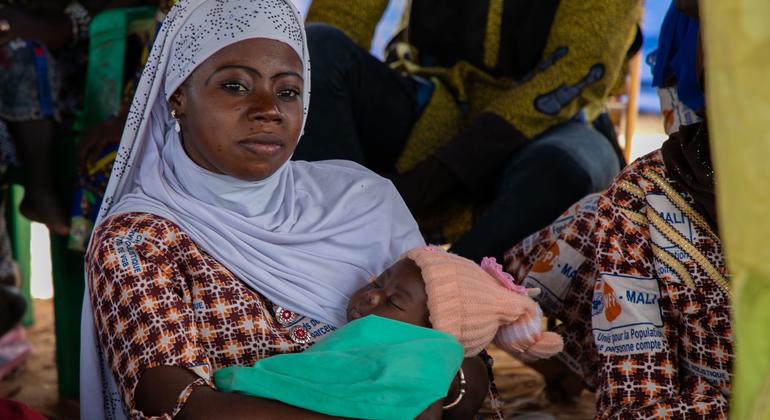Violations of women’s reproductive health rights cause an increase in preventable deaths


Interwoven lives, strands of hope: Ending inequality in sexual and reproductive health and rightsrevealed that more than half of preventable maternal deaths occur in countries in crisis or distress.
It highlights the role of racism, sexism and other forms of discrimination in preventing progress on sexual and reproductive health issues.
According to the findings, women and girls trapped in poverty are more likely to die prematurely due to inadequate health care if they belong to a minority group or are trapped in a context of conflict.
“When it comes to sexual and reproductive health issues, the sad truth is that instead of everyone being on board and working together, there is a kind of polarized dialogue, a kind of divisive attitude, and in some ways, a ‘second-class citizen’ attitude towards the rights of women and girls.” UNFPA Managing director Natalia Kanem said in one interview with UN News.
Listen to our full in-depth interview with the UNFPA chief below:
Overall, there have been significant advances in sexual and reproductive health, which became a global sustainable development priority three decades ago.
“In just one generation, we have reduced the rate of unwanted pregnancies by nearly one-fifthreduce maternal mortality by one-third and ensure laws against domestic violence in more than 160 countries,” the UNFPA Executive Director said in launching the report.
Progress stalled
However, progress is slowing or stalling in some key areas. In a world where one in four women cannot say no to sex with their partner and nearly one in 10 have no say on contraception, 800 women die every day in childbirth – a worrying figure unchanged since 2016.
Nearly 500 preventable deaths every day are occurring in countries experiencing humanitarian crises and conflicts.
“The world has made no progress in saving women from preventable deaths during pregnancy and childbirth.,” Ms. Kanem said, adding that for the first time, data was collected on whether women’s bodily autonomy was strengthened over time.
She added that in 40% of countries where information is available, autonomy is weakening due to the inability to reach “the most remote people”.
The report says there are clear disparities between North and South, West and East globally when it comes to contraception, safe birth services, respectful maternity care and services. other essential services.
Pockets of inequality
However, even within those areas there are “zones of inequality,” the report emphasizes. Women of African descent in the Americas face higher rates of maternal mortality than white womenthis is especially evident in the United States, where the rate is three times the national average.
Indigenous peoples and ethnic minorities also face high risks related to pregnancy and childbirth.
For example, in Europe, in Albania, more than 90% of Roma women from the most disadvantaged socioeconomic groups have serious problems accessing health care compared to only 5% of Roma women. Albanians belong to the most privileged class.
Additionally, women with disabilities are 10 times more likely to experience gender-based violence, and individuals with diverse sexual orientations and gender expressions experience significant violence and barriers to care.
There is no ‘one size fits all’ solution
The report emphasizes the importance of adapting programs to community needs and empowering women and girls to develop and implement innovative solutions.
It also calculates that if an additional $79 billion is invested in low- and middle-income countries by 2030, 400 million unwanted pregnancies could be prevented, 1 million lives saved and $660 billion in economic benefits could be generated.
“Women are half of society and women are trying to claim their full rights. We believe that the ability of human society to thrive really depends on who is vulnerable,” Ms. Kanem speak UN News.
The UNFPA Executive Director believes that the ability to ensure reproductive health rights is another major challenge.
“Men’s real responsibility is to protect women’s reproductive rights, everyone’s reproductive rights,” Ms. Kanem said.




